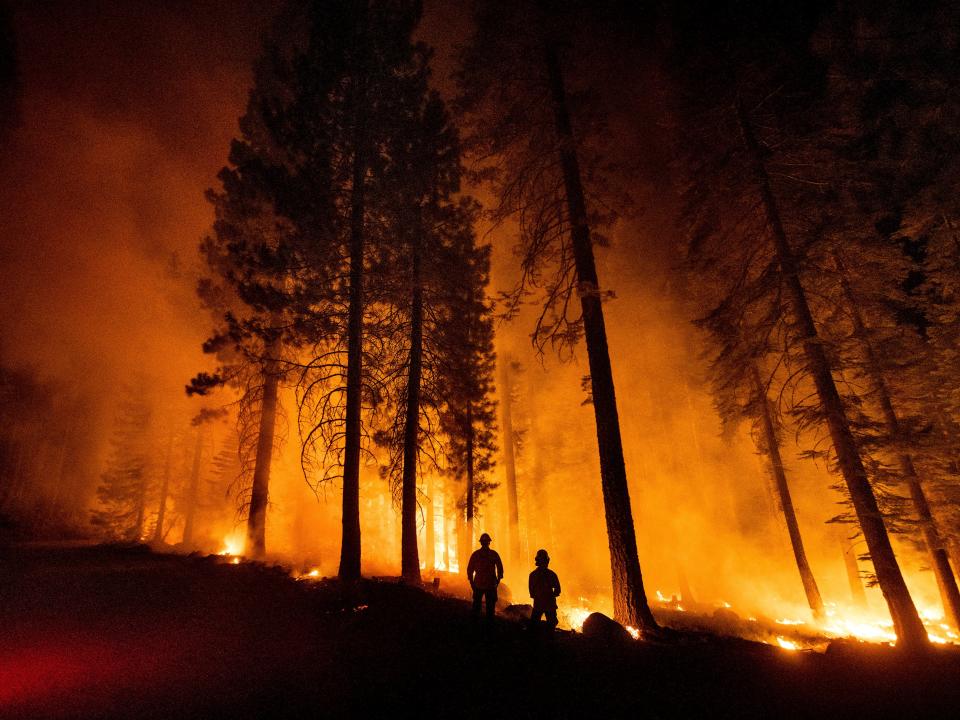Environmentalists slam ‘pathetic’ climate spending in infrastructure deal

The $1 trillion infrastructure package that’s steadily heading towards passage has been hailed as a major bipartisan achievement, after 17 Republicans in the Senate joined all 50 Democrats earlier this week in voting to take up full debate on the massive spending bill.
But environmentalists say this progress has come at a major cost: more than $10 billion in spending on the climate crisis has been dropped compared to a framework announced last month, and even more since President Biden’s first proposals on the package earlier this year.
The White House has touted the package, which includes $550 billion of spending on physical infrastructure, as the largest single infrastructure investment in US history.
Yet other areas have suffered. The deal includes calls for $39 billion for public transit, down from $49 billion proposed in June and less than half of the $85 billion Joe Biden originally wanted.
What was originally a planned $7.5 billion investment in electric busses and transit is now $2.5 billion for electric busses, and another $2.5 billion for ferries.
Potential funding for electric vehicle charging stations, a major component of Joe Biden’s decarbonisation agenda, has also been slashed by half.
The potential agreement does, however, include $73 billion to modernise the nation’s electric grid and expand renewable energy, as well as well as $46 billion to help local governments prepare for extreme weather events like droughts and wildfires, which only get worse as the climate crisis deepens.
All told, environmentalists say the deal may not be enough to meet the president’s goal of building half a million charging stations, let alone cutting US greenhouse gas emissions by 2030, the minimum necessary to maintain a relatively safe climate.
“This is the first-ever national investment in EV charging infrastructure in the United States and is a critical element in the Biden-Harris Administration’s plan to accelerate the adoption of EVs to address the climate crisis and support domestic manufacturing jobs,” the White House said in a fact sheet detailing the deal.
But environmentalists have a less rosy outlook on the package.
“Biden and Congress can’t get distracted by this pathetic version of an infrastructure package that only waters down much needed climate priorities, like transit, even further,” the Sunrise Movement’s advocacy director, Lauren Maunus, said in a statement.
The proposed agreement is facing criticisms from the right and left.
Donald Trump has threatened to primary Republicans who back the effort.
“It is a loser for the USA, a terrible deal and makes the Republicans look weak, foolish and dumb,” Mr Trump said of the infrastructure plan in a recent statement. “If this deal happens, lots of primaries will be coming your way.”
Progressives within the Democratic party, meanwhile, are calling for more spending on the climate crisis, and have urged linking the bipartisan deal to an even bigger $3.5 trillion spending package Democrats plan to push through Congress without the help of Republicans through the “reconciliation” budgeting process.
“It will not include comprehensive clean energy policy, and I am not willing to support throwing climate change overboard,” Senate Finance Committee chair Ron Wyden of Oregon said earlier this month. “The two bills have to be directly connected.”
House Speaker Nancy Pelosi says she won’t take up the bipartisan infrastructure package until the $3.5 trillion spending deal passes the Senate, though moderate Democrats like Arizona’s Kyrsten Sinema have threatened to torpedo the reconciliation spending over its price tag.
Read More
UK weather warning: Storm Evert to hit as Met Office warns country not prepared for climate crisis
These are the best places to ride out global societal collapse, researchers discover

 Yahoo Finance
Yahoo Finance 